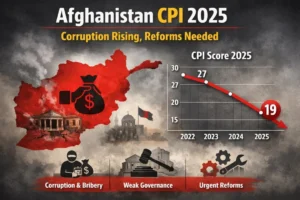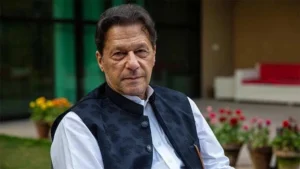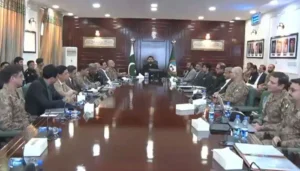The recent decision by the UN Sanctions Committee to deny a travel exemption for Afghanistan’s Interim Government Foreign Minister, Amir Khan Muttaqi, to visit Pakistan has sparked notable discussions among regional experts and diplomats. Previously, Muttaqi had received multiple exemptions to travel for diplomatic missions to countries such as Turkey, China, Qatar, and Doha. Denying this exemption now comes at a sensitive time, as improving Afghanistan-Pakistan relations through direct dialogue is viewed as critical for regional peace and stability. This move raises questions about the consistency of UN sanctions policy and its impact on ongoing diplomatic efforts in South Asia.
Background & Context
Amir Khan Muttaqi, serving as the foreign minister of the Taliban-led Afghan government, has been under a UN travel ban since 2001 due to sanctions targeting Taliban officials under Security Council resolutions from 1988 onwards. However, since the Taliban’s return to power in 2021, the UN has issued several exemptions allowing Muttaqi to conduct diplomatic engagements abroad. He has successfully traveled to countries like Turkey, China, Qatar, Iran, Oman, and Doha for key diplomatic meetings, fostering dialogue on peace and cooperation.
Importance of the Pakistan Visit
The planned trip to Pakistan was exceptionally important for both Kabul and Islamabad. Pakistan and Afghanistan share not only a long and porous border but also intertwined economic interests and cultural ties. As neighbors facing significant security challenges, such as cross-border militancy and refugee issues, the visit was aimed at resetting bilateral ties and promoting peace, economic cooperation, and better border management. This visit held potential to ease tensions, encourage trade, and double down on counterterrorism efforts. For both countries, direct engagement by the Foreign Minister at such a critical time could have paved the way for resolving longstanding conflicts and mistrust.
UN Sanctions: Challenges and Regional Reactions
Despite these stakes, the UN Committee denied the travel exemption this time around, citing “technical issues” such as missing or delayed documentation from either Afghan or Pakistani authorities. Yet, this is the first time such a request for travel to Pakistan by Muttaqi has been refused, whereas travel approvals were granted for visits to Turkey, China, and Doha. This inconsistency has raised questions among diplomats and analysts. Why has Pakistan become a unique case where sanctions block Muttaqi’s visit, particularly when his travel to other key nations proceeded without hindrance? Some suspect political pressure from influential countries, notably the U.S., may have influenced the outcome.
The Debate: Upholding UN Sanctions vs. Advancing Diplomacy
Former Afghan Vice President Amrullah Saleh praised the move as a sign of accountability. However, many in the diplomatic community warn that rigid enforcement of sanctions should not interfere with crucial peace dialogue. Sanctions must target accountability without stifling diplomacy. Peace processes need flexible channels. Denying travel exemptions for peace talks can hamper engagement and prolong instability. The international community must ensure that sanctions act as incentives for constructive progress, not communication barriers.
Ensuring Consistency in International Policy
This episode underscores the need for clarity and coherence in how sanctions are applied. Arbitrary or opaque decisions damage trust and hinder efforts to stabilize Afghanistan and the broader region. The global community, including major powers, should strive for balanced policies that maintain sanctions while facilitating diplomatic efforts that advance peace and security. Supporting travel exemptions for peace-oriented visits like Muttaqi’s Pakistan trip, when properly documented, would reflect a commitment to dialogue over isolation.
Conclusion
The denial of Amir Khan Muttaqi’s travel exemption to Pakistan amid his other permitted visits raises important questions about the application of UN sanctions and the future of regional diplomacy. Pakistan and Afghanistan share urgent bilateral issues requiring direct ministerial engagement, which sanctions should not unnecessarily block. Striking the right balance between accountability and diplomatic engagement remains a critical challenge for the international community as it navigates the path toward stability in South Asia.






